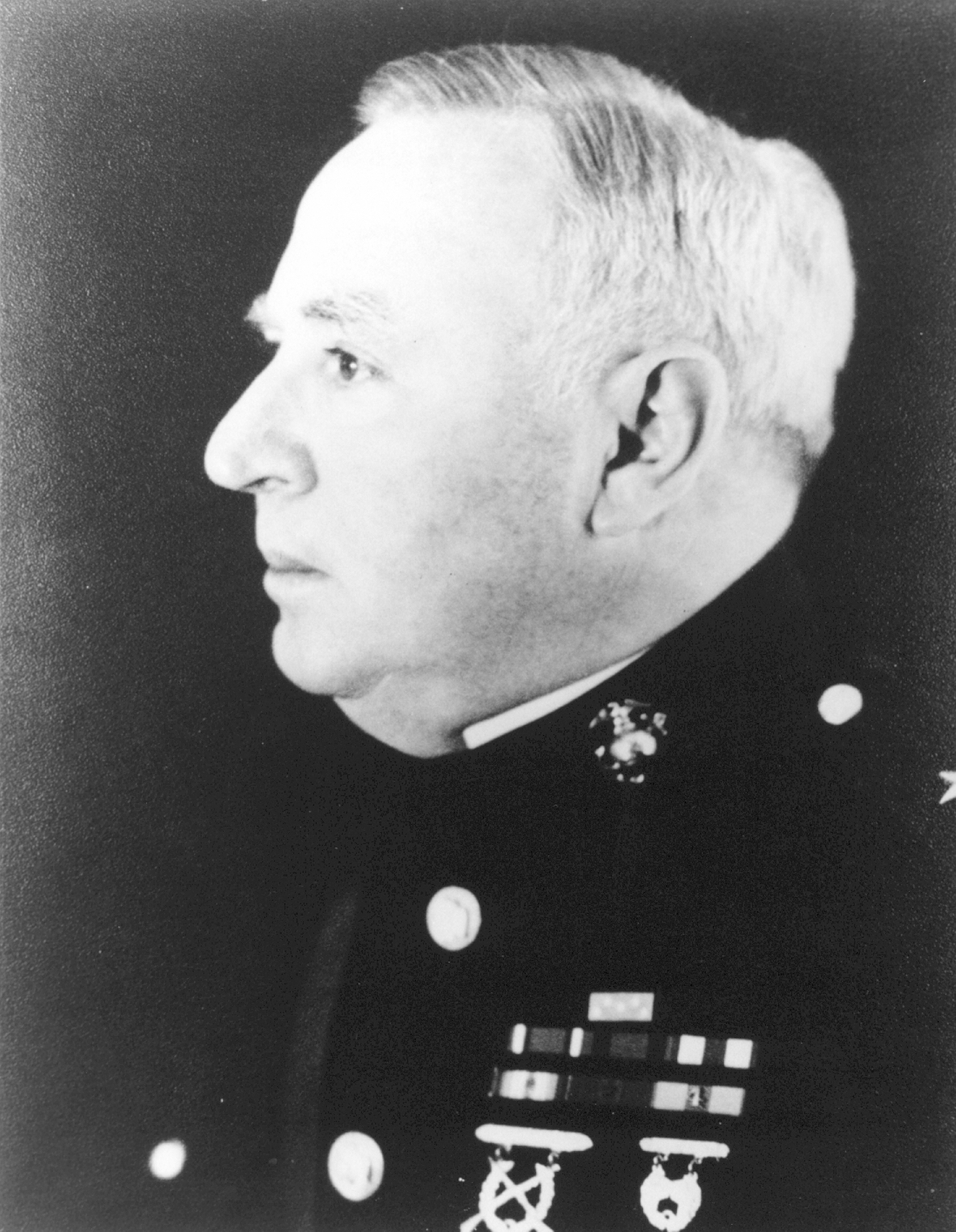
MAJOR GENERAL
EDWARD ALBERT OSTERMANN, USMC (DECEASED)
Medal of Honor Citation
Major General Edward Albert Ostermann received his Medal of Honor for conspicuous gallantry in Haiti in 1915.
Edward Albert Ostermann was born in Columbus, Ohio, on 23 November 1882. He attended the public schools of Milo, Columbus, and Dayton, Ohio. After attending Ohio Northern University at Ada for two and one-half years, he enlisted in the Army on 21 October 1899. Discharged a chief trumpeter at the expiration of a three-year enlistment, he remained a civilian for about one and one-half years and then reenlisted in the Army on 28 April 1904. He was honorably discharged by purchase on 12 November 1905 as a chief trumpeter with the First Band, Artillery Corps.
He accepted a second lieutenant's commission in the Marine Corps on 20 March 1907 and served continuously until his retirement as a major general on 1 January 1943.
Major General Ostermann's long career took him to Cuba, Panama, China, Nicaragua, Mexico, Haiti, Hawaii, and the Philippines.
He was awarded the Medal of Honor in 1917 for conspicuous gallantry in action during the capture of Fort Dipitie, Haiti, on 24 October 1915. The citation accompanying the Medal states that a Marine detachment was crossing a river in a deep ravine at night when it was suddenly fired upon from three sides by about 400 Cacos concealed in the bushes about 100 yards from the objective, Fort Dipitie. The Marines fought their way forward to a good position and maintained it throughout the night despite the continuous fire of the Cacos. At daybreak, the Marines, in three squads commanded by Lt Ostermann, Capt William P. Upshur, and GySgt Daniel Daly, advanced in three different directions, surprising and scattering the Cacos in all directions. Capt Upshur's and Lt Ostermann's squads then captured the fort with a total of 13 Marines. The fort was demolished and burned and the garrison was put to flight. "These men were in pitch darkness surrounded by ten times their number and fighting for their lives…" the citation relates,"…Had one squad failed, not one man of the party would have lived to tell the story…"
Lieutenant Ostermann, Capt Upshur who also lived to become a general, GySgt Dan Daly (the fabulous recipient of two Medals of Honor) and Maj Smedley D. Butler (another-two-time recipient who also became a general), all received the Medal of Honor for that battle.
Later in the Haitian campaign, on 11 November 1915, Lt Ostermann was wounded in action and returned to the United States for hospitalization.
Ordered to Washington, D.C., in 1938 to become the Assistant Adjutant and Inspector of the Marine Corps, he was advanced to the post of Adjutant and Inspector with the rank of brigadier general in February 1939.
With the coming of World War II, BGen Ostermann requested combat duty as either a brigadier general or as a colonel. In refusing the request as "impracticable at this time", the Major General Commandant expressed his appreciation to the Adjutant and Inspector.
Brigadier General Ostermann was retired because of physical disability on 1 January 1943. Because of having been "specially commended for his performance of duty in actual combat" by virtue of the award of the Medal of Honor, BGen Ostermann was promoted to the rank of major general on the retired list.
Major General Ostermann died 18 May 1969. He is buried in Arlington National Cemetery, Arlington, Virginia.
He earned the following medals and decorations: Medal of Honor, Purple Heart, Cuban Pacification Medal, Marine Corps Expeditionary Medal with two stars, Mexican Service Medal, Nicaraguan Campaign Medal, Haitian Campaign Medal, World War I Victory Medal with West Indies clasp, American Defense Service Medal, American Area Campaign Medal, World War II Victory Medal, and the Republic of Haiti's Distinguished Service Medal in the grade of Officer.
Haitian Campaign 1915 Medal of Honor